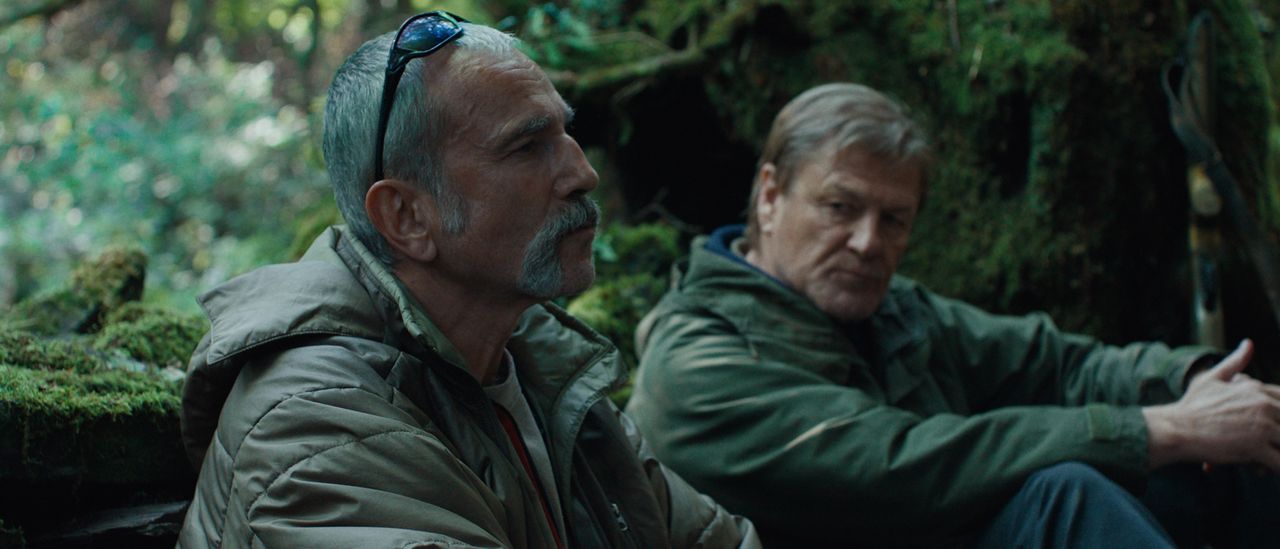
A Return to the Spotlight
It's often hard to believe when an artist claims they're retiring. If someone truly possesses talent, it's unlikely that their artistic drive can be turned off like a light switch. Real passion doesn't die, and the desire to create can't be permanently ignored. This belief was reinforced when Daniel Day-Lewis appeared in Paul Thomas Anderson’s 2017 film Phantom Thread. While many thought that might be his final performance, the arrival of Anemone has proven otherwise. The legendary actor hasn’t lost any of his dramatic skill or gravitas over the past eight years, and his performance in the film is nothing short of phenomenal.
A Story of Fathers and Sons
Anemone is a story about fathers and sons, co-written by the three-time Oscar winner Daniel Day-Lewis and his son, first-time director Ronan Day-Lewis. The film is structured like an onion — on the surface, it seems simple, but as the story unfolds, it reveals layers of depth and complexity beneath. The cast is small, with just a few characters, and the narrative moves between two main locations. Despite its simplicity, the film is lean, raw, and powerful, demanding exceptional performances from all involved, including Day-Lewis, Sean Bean, Samuel Bottomley, and Samantha Morton.
The Stoker Family
The film centers around the Stoker family, a fractured clan with a complicated history. Jem Stoker (Sean Bean) is married to Nessa (Samantha Morton), and together they have raised their teenage son Brian (Samuel Bottomley). However, Brian is the biological child of Jem’s brother Ray (Daniel Day-Lewis), who abandoned Nessa when she was pregnant and chose to live a solitary life in the wilderness. For years, there has been no contact between Ray and the family, but everything changes when Brian gets into an altercation that nearly results in another boy’s death, putting him on the verge of being declared AWOL from the military.
While Brian stays at home grappling with what he has done, Jem decides it's time to reunite with his brother. He travels to Ray’s remote home to see if he can convince him to meet his son. Disturbed by a lifetime of trauma and stubbornly resistant, Ray initially refuses. But over the course of their time together, Jem manages to get Ray to open up about the terrible secret that drove him away from the world after his time in service during The Troubles.
Emotional Depth and Complexity
Anemone follows a very simple structure, yet it carries great emotional weight. One side of the film explores the question of why Ray abandoned his family, delivering emotional blows as it paints a portrait of a deeply broken man. As Jem comes to understand his brother, we see Ray as a complex character — a sonofabitch with a volatile temper, yet captivating. His brother’s persistence reminds us that there is more to him than just trauma and rage.
The other half of the film examines the power of a father in a son’s life, regardless of whether he is physically present. We only get a glimpse of Brian’s life, but we understand him as a young man plagued by the mystery of not knowing his father and clearly inheriting some of his traits, particularly his anger.
A Balancing Act
Despite its heavy themes, Anemone manages to avoid drowning the audience in misery. Part of this is due to the tonal complexity of the script, which includes moments like a grotesque tale of scatological revenge that Ray tells about getting back at an elderly priest who abused him as a child. Whether to laugh or cry is unclear, but the film handles such moments with nuance.
The visual beauty of the film also plays a key role. Jem and Ray spend their days in stunning forests and along expansive beaches, creating a contrast to the emotional turmoil within the story. The cast delivers remarkable performances, with each actor melting into their roles. Daniel Day-Lewis alone is worth the price of admission, bringing both pathos and spite to his character. Sean Bean provides a powerful emotional journey, drawing out Ray’s truth and confronting him physically.
A Powerful Performance
Samuel Bottomley and Samantha Morton shine on the other side of the plot. Bottomley conveys a lifetime of confusion and pain through his eyes and posture, while Morton offers a potent blend of love and fear, wanting the best for her son but also questioning why Ray left.
Anemone is worth watching for the return of Daniel Day-Lewis alone, as he is a singular artist and one of the most gifted performers in cinema history. But the bonus is that he and his son have created a film that is deep, challenging, beautiful, dark, and ultimately optimistic.

Post a Comment